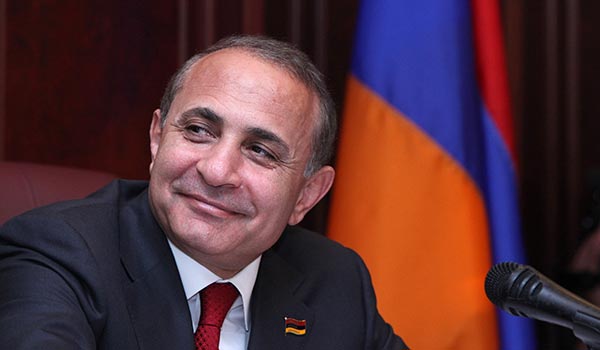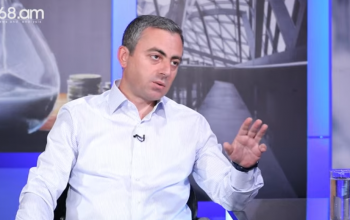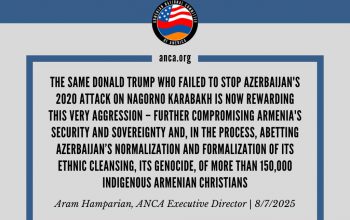Nearly seven years after initial charges were brought against him, former Armenian Prime Minister Hovik Abrahamyan was arrested on Friday, in what critics see as a politically convenient revival of a stalled corruption probe.
The Anti-Corruption Committee (ACC) has petitioned for Abrahamyan to be placed in pre-trial detention on charges including money laundering, abuse of power, and illegal entrepreneurial activity. A spokesperson for the agency declined to disclose further details, leaving unclear whether the new charges are part of the same case launched in 2018, shortly after Nikol Pashinyan came to power.
That original case centered on allegations that in 2008, Abrahamyan — then chief of staff to President Serzh Sargsyan — forcibly seized a controlling share in a sand quarry in Ararat province from a local businessman. Abrahamyan denied the charges, and no trial followed. In 2023, the ACC quietly added a money laundering charge to the case, but again failed to move it forward.
Then in 2022, state prosecutors requested the seizure of 21 billion drams (about $54 million) in cash and 59 properties allegedly tied to Abrahamyan and his family, arguing they were obtained through illicit means. While these assets were frozen, one high-profile property — a luxury home in Yerevan — was nonetheless sold to a businessman reputed to be close to the Pashinyan government. Authorities offered no explanation for how the sale was permitted.
Now, with the former premier back in custody, questions are mounting about the selective application of justice and the murky links between past and present elites. Observers note the timing: Abrahamyan, a once-powerful figure from the Ararat region who turned against Sargsyan after being dismissed as prime minister in 2016, has remained largely silent in recent years. Yet no substantial legal movement occurred until now — raising suspicions about political motivations behind the arrest.
At age 66, Abrahamyan represents the last generation of Armenia’s oligarchic class that rose to power through regional patronage and business-political entanglements. Whether his arrest signals a genuine break from that era or another episode in the Pashinyan administration’s pattern of performative anti-corruption remains to be seen.
With critical voices questioning the government’s own deals and asset transfers, the Abrahamyan case may say as much about Armenia’s present leadership as it does about its past.




